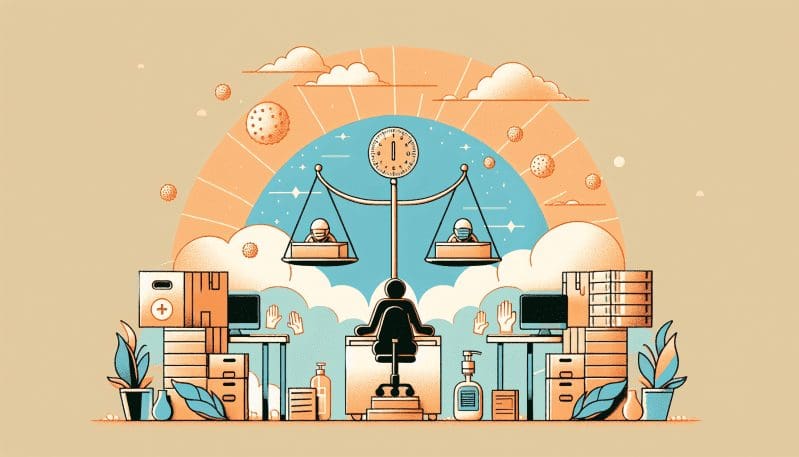A silent but profound revolution is taking root in the corporate world, its banner emblazoned with a concept as ancient as it is timely: mindfulness. In the wake of a global pandemic that has forever altered the contours of the modern workplace, businesses and their graduate employees are increasingly turning towards mindfulness practices as navigational tools through the uncharted waters of the new normal.
Mindfulness, the act of maintaining a moment-by-moment awareness of our thoughts, feelings, bodily sensations, and surrounding environment with openness and curiosity, has gained traction in the workplace. This cultural shift mirrors the larger societal awakening to the importance of mental health and well-being. Corporations, traditionally seen as bastions of profit-maximization, are beginning to recognize that the well-being of their employees is not just a moral imperative but a strategic investment.
The integration of mindfulness into workplace cultures can be seen in various forms, from Google’s ‘Search Inside Yourself’ program to Goldman Sachs’ offerings of ‘resilience training’ for its workers. These initiatives are not mere perks; they are acknowledgments of the complexity of human productivity and attest to the intricate relationship between worker satisfaction and company output. Research supports this, showing that mindfulness can reduce stress, foster emotional intelligence, and improve cognitive functioning.
However, this transition to a more mindful workplace is not without its challenges. Skepticism about the sincerity of corporate mindfulness programs is warranted, especially when such programs are used as a Band-Aid for systemic issues like overwork and lack of work-life balance. The risk of commodifying mindfulness as just another productivity tool also looms large, potentially stripping the practice of its comprehensive benefits and depth.
In this arena of change, graduates emerge as both beneficiaries and champions. As digital natives entering the workforce well-versed in the language of personal and professional development, they can be the drivers of authentic integration of mindfulness principles. This movement has the potential to redefine their career trajectories, offering a more holistic approach to success that includes personal growth and satisfaction.
Reflecting on historical movements that have shifted workplace norms, such as the industrial revolution’s impact on workers’ rights or the tech boom’s influence on flexible work arrangements, the mindful revolution may be indicative of a deeper change in societal values. It represents a pivot from relentless productivity to a more sustainable model that honors the multifaceted nature of human potential.
Case studies from leading corporations and data from recent surveys lend weight to the argument for mindfulness in the workplace. Experts from various fields, including psychology, business, and neuroscience, offer insights into how a mindful approach can profoundly affect organizational culture.
The mindful revolution in the workplace is not just a fleeting trend. It is a paradigm shift that reflects a growing understanding of the importance of well-being in the work environment. As we navigate the post-pandemic era, it is a reminder that the future of work may not lie in working more, but in working more mindfully.
The graduates’ club, as an assembly of fresh, diverse minds entering this evolving landscape, is poised to lead the charge. Through fostering a culture that values mindfulness, they can catalyze a broader reimagining of what it means to work, and more importantly, to live well in our modern world.




























